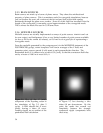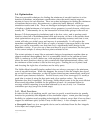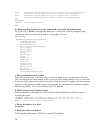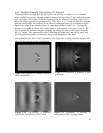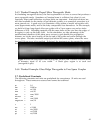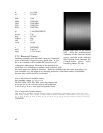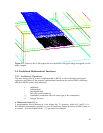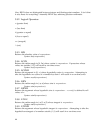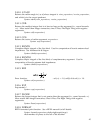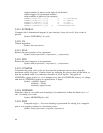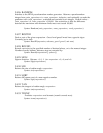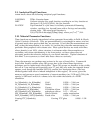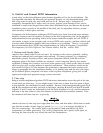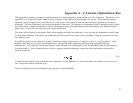Also, REXX does not distinguish between integer and floating-point numbers. It isn’t that
it uses floats for everything—internally REXX uses arbitrary-precision arithmetic.
3.8.2. Logical Operators
> (greater than)
< (less than)
≥ (greater or equal)
≤ (less or equal)
<> (unequal)
\ (not)
3.8.3. ABS
Returns the absolute value of <expression>.
Syntax: abs(<expression>)
3.8.4. ACOS
Returns the radian angle in [0, 2π) whose cosine is <expression>. Expressions whose
values are outside [-1,1] will result in run-time errors.
Syntax: acos(<expression>)
3.8.5. ACOSH
Returns the argument in [0, ∞) whose hyperbolic cosine is <expression>. Attempting to
take the hyperbolic arc-cosine of a number less than 1 will result in a run-time error.
Syntax: acosh(<expression>)
3.8.6. ASIN
Returns the radian angle in (-π, π] whose sine is <expression>.
Syntax: asin(<expression>)
3.8.7. ASINH
Returns the argument whose hyperbolic sine is <expression>. ASINH(x) is defined for all
values of x.
Syntax: asinh(<expression>)
3.8.8. ATAN
Returns the radian angle in (-π/2, π/2) whose tangent is <expression>.
Syntax: atan(<expression>)
3.8.9. ATANH
Returns the argument whose hyperbolic tangent is <expression>. Attempting to take the
hyperbolic arctangent of a number outside (-1,1) will result in a run-time error.
44



